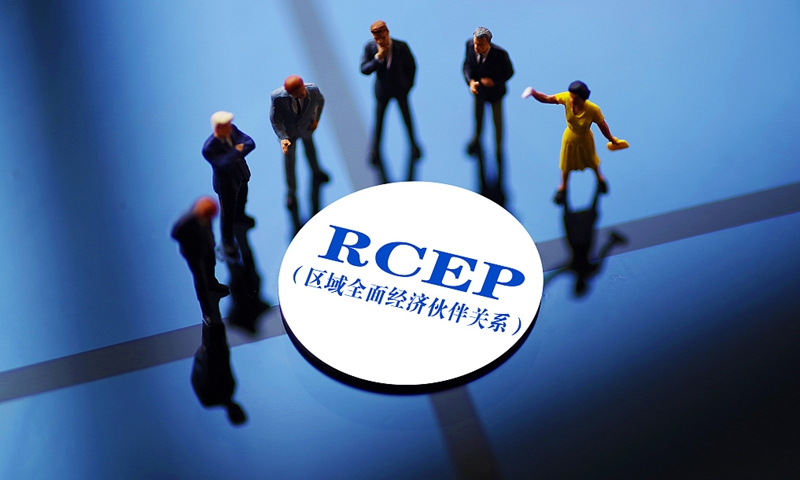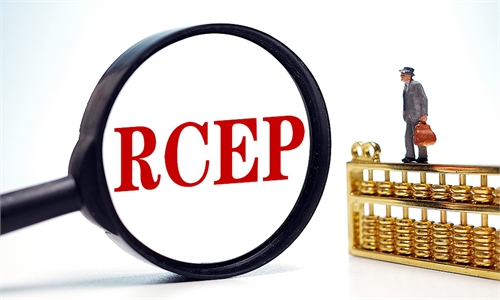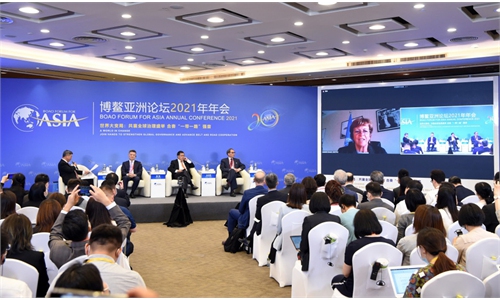
RCEP Photo: VCG
Japan on Wednesday approved the Regional Comprehensive Economic Partnership (RCEP) following similar actions by China, Singapore and Thailand, marking another step forward for the implementation of the world's biggest free trade pact.
Experts said that the timely decision reflects Japan's eagerness to maintain its trade and economic partnership with China through the regional trade pact, which will boost Japanese export to the Chinese market, despite the island country's geopolitical alliance with the US.
Japan's parliament approved the trade pact signed by 15 Asia-Pacific countries, including China, South Korea and the 10-member Association of Southeast Asian Nations, Kyodo News reported.
As of Wednesday, China, Singapore and Thailand had also completed the procedures for ratification.
After China took the lead to ratify the RCEP, the timely follow-through by Japan - a large and developed economy in the region - will be important to push for the implementation of the pact on January 1, 2022, Zhao Gancheng, a research fellow at the Shanghai Institute for International Studies, told the Global Times.
"This is a wise decision for Japan, reflecting that it still hopes to maintain trade and economic partnerships with China, no matter how closely it follows the US in geopolitical issues involving the island of Taiwan and Northwest China's Xinjiang," Zhao said.
He said that "the pact may be the most important card for the Suga administration to play for public support this year, as the Japanese economic recovery has been affected by the pandemic and the postponed Olympics."
The agreement will greatly boost trade and investment between China and Japan, as there will be a free trade arrangement between the two major Asian economies, Zhang Jifeng, a former vice director of the Institute of Japanese Studies at the Chinese Academy of Social Sciences, told the Global Times on Wednesday.
"With the deal, more than 80 percent of Japanese exports will enjoy zero-tariff access to the vast Chinese market, and vice versa. Investment liberalization, intellectual property protection and people-to-people exchanges will also be promoted," he said.
Data from the Chinese Ministry of Commerce showed that total trade between China and Japan grew 0.8 percent year-on-year to $317.5 billion in 2020, while China's imports from Japan increased by 1.8 percent to $174.87 billion.
In terms of investment, Chinese companies' investment in all sectors in Japan soared by 42 percent to $360 million last year.
Zhang said that Asia's economy - the engine for the global economy - will continue to boost the post-pandemic recovery through closer regional integration, guided by the RCEP.
The pact - signed last November - covers about 2.27 billion people and a total GDP of $26 trillion, both about 30 percent of the global totals.
Economic growth in developing Asia is forecast to rebound to 7.3 percent in 2021, supported by a healthy global recovery and early progress on COVID-19 vaccines, according to an Asian Development Bank report released on Wednesday.
The bank projected that China's GDP will expand 8.1 percent this year.



